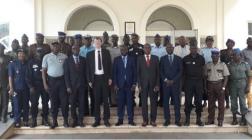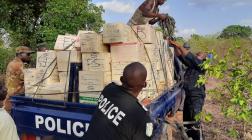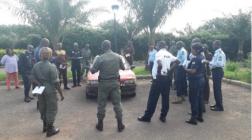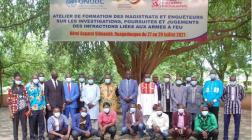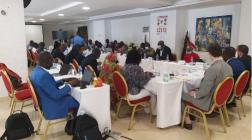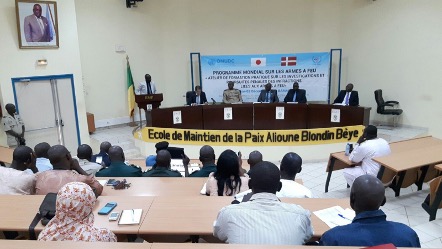
UNODC Global Firearms Programme provides tailored legislative advice and legal drafting support to Central African Republic, Côte d’Ivoire, Chad, Democratic Republic of Congo and Niger
In 2021 and 2022 in the framework of the project “Countering transnational illicit arms trafficking through the implementation of the United Nations Convention Against Transnational Organized Crime and its Firearms Protocol”, the UNODC Global Firearms Programme provided legislative advice to Central African Republic, Côte d’Ivoire, Chad, Democratic Republic of Congo and Niger. The legislative advice seeks to assist the countries to strengthen their legal and institutional frameworks to facilitate adequate and effective responses to the prevention, detection, investigation, prosecution and adjudication of firearms-related criminality, including illicit manufacturing, trafficking and related crimes, in line with international and regional instruments related to firearms, such as UNTOC and its Firearms Protocol, CIFTA Convention, inter alia.
Likewise, the Global Firearms Programme’s legislative assistance resulted in the adoption of legislation on firearms and the general arms regime in Burkina Faso and Mali in 2021.
The new legislation provides these states with a new framework on firearms and ammunition, in line with the international and regional legal frameworks, including the Firearms Protocol and the ECOWAS’s Convention on Small Arms and Light Weapons. The new pieces of legislation include more precise terminology and definitions in line with international and regional instruments; it also introduces measures to adequately regulate the trade, manufacture, possession, repair, carrying, acquisition, use, transfer and the brokering of firearms. In addition, it introduces criminal offences and appropriates sanctions for all firearms-related offenses in the UN Firearms Protocol. In order to facilitate international and regional cooperation, it strengthens information exchange mechanisms through the institutionalization of electronic databases and appropriate registers on firearms. The new laws will be followed by regulatory texts, contains other relevant provisions on marking, control, management and securing of stockpiles.
The project “Countering transnational illicit arms trafficking through the implementation of the United Nations Convention Against Transnational Organized Crime and its Firearms Protocol” has as its overall objective to prevent and counter the illicit manufacturing of and trafficking in firearms, and their links to transnational organised crime and terrorism, through the ratification and implementation of the Protocol against the Illicit Manufacturing of and Trafficking in Firearms, their parts and Components and Ammunition, supplementing the United Nations Convention Against Transnational Organized Crime (UNTOC). The project is implemented by the Global Firearms Programme (GFP), established by the first project funded by the European Union (EU) (IFS /2010 /259-204), which builds upon five interconnected pillars, including: (1) adequate policy and legislative frameworks, (2) implementation of comprehensive firearms control and regulatory frameworks, (3) effective criminal justice responses to illicit trafficking and related crimes, (4) broad international cooperation and regular exchanges of information and expertise through communities of practitioners, and (5) enhanced knowledge and intelligence on firearms trafficking to monitor illicit trafficking flows.
The project’s outcomes aim at supporting these interconnected building blocks, and the activities programmed in order to achieve them include four outputs, namely: (1) increase awareness of the firearms issue and its international responses, and adequate policy and legislative frameworks in place, in line with relevant international and regional instruments; (2) increase capacities of countries and sub-regions to implement effective firearms control regimes in line with the Firearms Protocol and other relevant instruments, and to prevent, investigate and prosecute firearms trafficking and related offences through effective national response and international law enforcement and judicial cooperation; (3) support effective cooperation and sharing of information and good practices among communities of firearms and organised crime/terrorism practitioners, through regular contacts and use of specialised cooperation networks and platforms and taking advantage of existing initiatives; and (4) improve capacity to monitor, analyse and identify synergies for firearms legislation and case-law with and amongst other forms of transnational organised crime, including cybercrime, money laundering, illicit drug trafficking, smuggling of migrants, or terrorism, inter alia.














